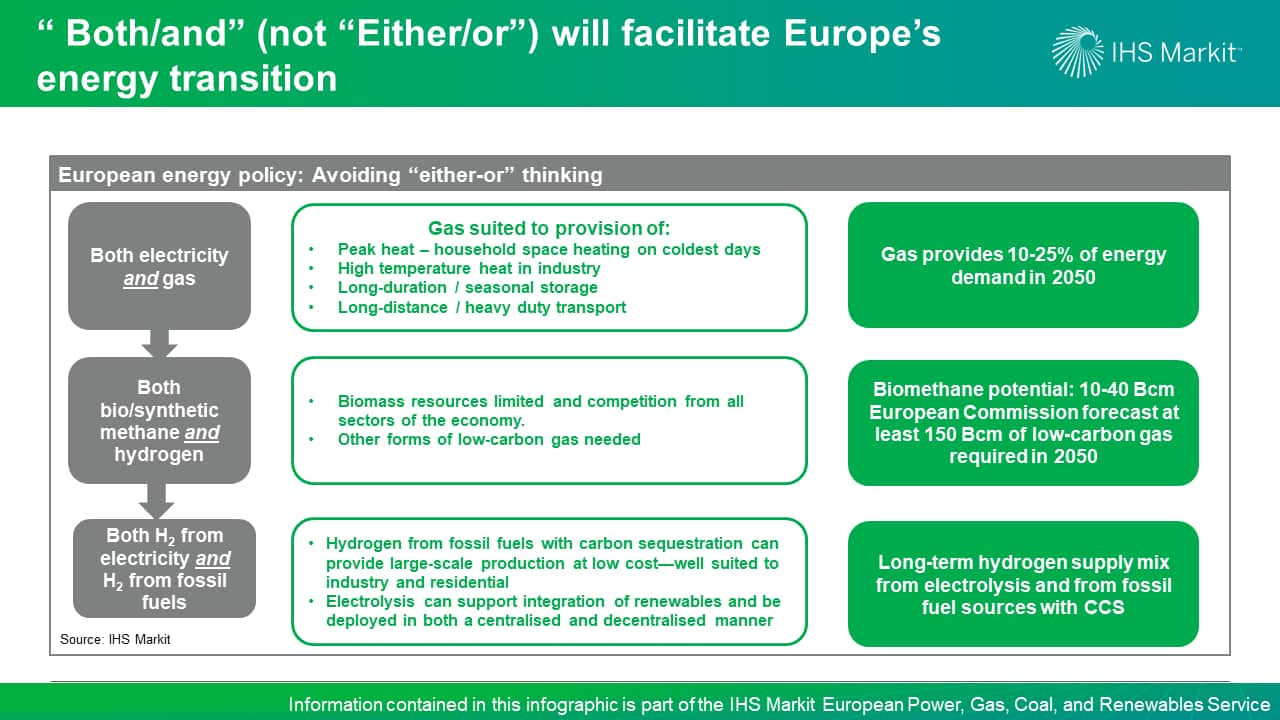“Both/AND” not “Either/OR” for the Next Phase of Europe’s Energy Transition
The next phase of the energy transition requires rapid reductions in GHG emissions across the economy—residential heat, transport and industry. Industry and policymakers may perceive a series of "either/or" choices—in fact an approach of "both/and" will be more helpful in meeting energy transition goals.
- BOTH Electricity AND gas. Gas as part of the energy mix in the long-term can reduce the cost of the energy transition. Low-carbon gas is well suited to provide peak heat for households—heating on the very coldest days, high temperature heat in industry, long-duration or seasonal storage for heat and power, and fuel for the transport sector—particularly heavy or long-distance transport. Application of hybrid systems combining gas and power has the potential to increase the share of intermittent renewables, reduce new infrastructure requirements and significantly lower GHG emissions.
- BOTH Bio/synthetic methane AND hydrogen. Biogas resources will be one important way to reduce the carbon intensity of gas in Europe, but it is not likely to be able to meet all future demand. Hydrogen can fill the gap and over time could even emerge as the dominant gas used for energy in Europe.
- BOTH Hydrogen from electricity AND hydrogen from fossil fuels. Hydrogen produced from electricity and hydrogen produced from fossil fuels with permanent carbon sequestration are complementary. The scale and maturity of hydrogen from fossil fuels allows for early use of hydrogen in the residential and industrial sector. Electrolysis can be decentralised for use in specific transport or industrial applications or centralised and supplied to a wider market. At either scale it can help integrate intermittent renewable power generation. Development of only one technology risks limiting options at this early stage.

Figure 1: "Both/and" (not "Either/or") will facilitate Europe's energy transition.
Europe is currently at the forefront to lower the carbon intensity of gas with different approaches championed across the continent. Germany is focusing on power to gas (hydrogen from electricity) France on renewable gas—biomethane, and the UK on hydrogen from natural gas with carbon sequestration.
To learn more about our hydrogen energy services, visit the page for our Hydrogen Forum.
